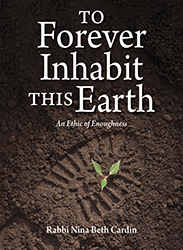Americans have yet to confront just how profoundly the past few years have altered our sense of what it means to be a citizen of this country and, on a deeper level, human beings in the world. There is consensus that “the pandemic” — by which we mean not just a public health crisis, but a series of overlapping political, economic, and cultural crises near-unparalleled in our shared history — has changed something about our social fabric and collective sense of self. But what does this mean for us in the present, and, more importantly, in the future? In his intimate and self-reflective memoir, Best Strangers in the World, National Public Radio’s Ari Shapiro attempts to answer these questions, displaying people at their best and offering glimpses of our enduring humanity during deeply dehumanizing moments.
Much of Shapiro’s debut book obeys the exigencies of a traditional memoir, in that he reflects on his childhood, love life, and career trajectory. His prose is accessible and moves between registers easily, ranging from the humorously self-deprecating to the elegiac and tragic. Shapiro is at his most poignant in three central chapters towards the end of the memoir. In “The Best Strangers in the World,” he closely follows the parallel paths of two Syrian refugees seeking asylum. Monzer, who risks his life to one day reunite with his family in Germany, and Mohammed, who is relocated without his family to the American South, are both welcomed in by a group of young Conservative Christian men on the eve of the Trump presidency. Shapiro moves between describing his detached horror at the impact of war on families and focusing on the stubbornly, gloriously human aspects of these men’s journeys. His time as a war correspondent leads him to question whether he is “equally naïve about the growing divisions in [his] own country,” such that he resolves to “explore the US with the same curiosity that I had approached other countries during my time abroad.”
Likewise, in two especially moving chapters, “The Whole World Falls In” and “You Can’t Kill Me. I’m an Idea. I’m Timeless.,” Shapiro explores his connection to gay faeries. He includes the awe-inspiring story of one of his mentors coming out at seventy years old, as well as his experience covering the Pulse Nightclub shooting. Shapiro’s reflections on gay men of his generation navigating their life trajectories and finding community are also deeply affecting, whether he’s reflecting on hate mail from readers (“Dear Ari, Please Butch up”), the early days of gay marriage (“As I wrote a paragraph about them, I thought of the importance of using the word family to describe a gay couple and their adopted son”), or what Andy Tobias called the “Best little boy in the world” syndrome. Particularly emotional are his descriptions of the bouquets donated to municipal town halls in California in the early days of gay marriage. And then there is Shapiro’s cool lack of surprise when, after the initial structure for gay marriage in California is repealed, he receives a letter rescinding his marriage.
This book will be of interest to anyone seeking to better understand the human faces behind investigative journalism in the United States today — particularly those of the hard-hit generation of gay men in America who’ve largely been left without mentors or leaders in the wake of the AIDS crisis. Shapiro, for one, is determined to “be a part of a new generation of journalists, with the power to nudge our industry and shape it from the inside” and to “help rewrite the narrative, one in which gay stories could actually have happy endings.”
What makes Shapiro’s memoir so remarkable is its meta-reflection about his place in the world and his growth as a human being. His coming-of-age story — retold through his relationships with other people — leaves the reader with a renewed sense of hope. He quotes Poland’s head rabbi, who is leading initiatives to resettle Ukrainian refugees: “History is important, but it does not dictate the future. We dictate the future.”
This is not simply a re-reporting of interviews already covered by NPR. Instead, Shapiro is committed to “dreaming the culture forward and creating the world we want it to be” — just like the radical faerie movement he so admires. He is contributing to a necessary public conversation, centering voices that make us beautifully, imperfectly human.
Joshua Kruchten is an educator and current doctoral candidate at NYU specializing in the literature and history of early modern Europe.





